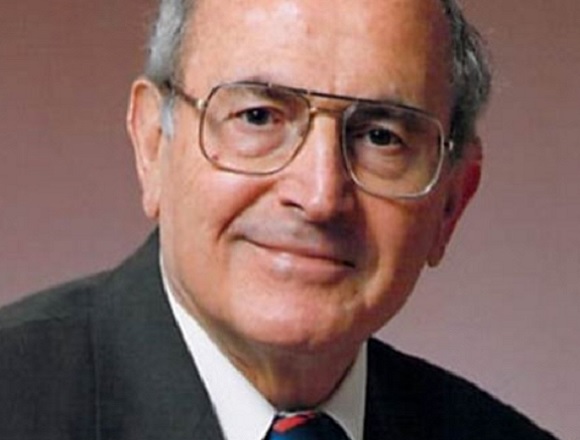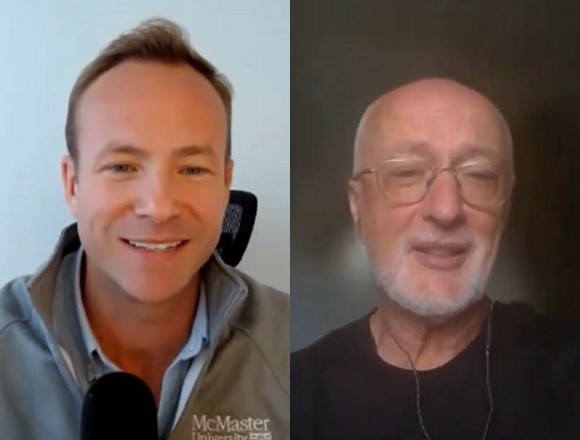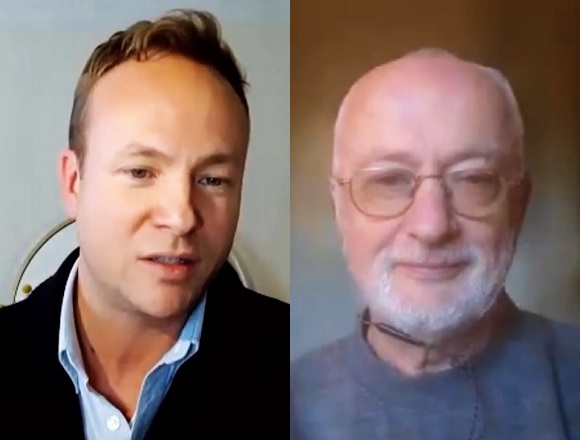Maura Marcucci, MD, assistant professor in the Department of Health Research Methods, Evidence, and Impact at McMaster University, and James Douketis, MD, expert in thromboembolism, discuss blood pressure control strategies in patients undergoing a noncardiac surgery according to the recent POISE-3 trial.
For a Publications of the Week article discussing POISE-3 trial findings on antihypertensive drug therapy before and after surgery, click here.
James Douketis, MD: Hello, everyone. My name is Jim Douketis and it’s my pleasure to welcome you to another installment of [McMaster Perspective]. This is a regular feature as part of the Textbook and every few weeks we invite an individual affiliated with a major paper that has potential to change practice.
This time I’m delighted to welcome Dr Maura Marcucci, who is an associate professor in the Department of Medicine at McMaster University and a scientist at the Population Health Research Institute. Maura led the POISE (PeriOperative Ischemic Evaluation)-3 study that looked at blood pressure control strategies around noncardiac surgery.
Welcome, Maura. We’re delighted to have you to talk about your important work.
Maura Marcucci, MD, MSc: Thank you so much, Jim. Thank you for having me.
James Douketis: The POISE-3 study looked at the adjustment of antihypertensive medications, in particular angiotensin-converting enzyme inhibitors (ACEIs) and angiotensin receptor blockers (ARBs), around the time of noncardiac surgery.
Maura, maybe we can start by… If you can give us your impression of what was the standard of care prior to the POISE-3 study in regard to perioperative interruption or continuation of ACEIs and ARBs?
Maura Marcucci: Thank you, Jim. We do have some data from the VISION (Vascular Events in Noncardiac Surgery Cohort Evaluation) cohort study to answer your questions.
The VISION cohort study, briefly, was a large international study, an observational study, that enrolled patients that were undergoing noncardiac surgery, and this is worldwide. Those data show that over 70% of patients that were included in the study had their antihypertensive medications, including ACEIs and ARBs, continued in 24 hours leading to surgery.
Now, this was 2014 to 2015. When we started POISE-3, very likely, the practice had really changed, so there was some uptake of the preliminary evidence that showed that possibly withholding ACEIs or ARBs would decrease perioperative hypotension and potentially cardiovascular complications.
I would say, when we started the POISE-3, very likely, the proportion of patients that had ACEIs or ARBs as usual care continued around surgery was lower than 70%, but I would say there was still equipoise. There was still a lot of variation across institutions about what you do perioperatively with these agents.
James Douketis: I think this clinical equipoise justified scientifically and ethically the conduct of the trial. Tell us a little bit about POISE-3, the 2 strategies that involved withholding the ACEIs and ARBs and continuing the ACEIs and ARBs. How are patients actually managed pre-, intra-, and postoperatively?
Maura Marcucci: The study was destined to compare 2 strategies that we call the hypotension avoidance and hypertension avoidance, to indicate the blood pressure abnormalities that preferentially each strategy intended to avoid.
Both strategies included a pre-op, intra-op, and post-op phase. In the hypotension-avoiding strategy, preoperatively patients were to withhold their ACEIs or ARBs, and the other antihypertensive medications were continued with a specific protocol. That was a stepwise protocol and it was prioritizing agents that control heart rate—for example, beta-blockers.
Intraoperatively patients had a specific target, mean arterial pressure target, that their anesthesiologists were invited to follow, which was ≥80 mm Hg.
Then, postoperatively, during the first 2 days, they would use the same algorithm to manage the chronic antihypertensive medications. So ACEIs and ARBs without the other hypertensive medications would be administered following the algorithm.
In the hypertension-avoidance strategy instead, which was meant to resemble what was the most common practice, all the antihypertensive medications, the chronic ones, were continued perioperatively, before and after surgery, and intraoperatively the mean arterial pressure target was ≥60 mm Hg.
Now, these were the intended strategies. During the study we did see that things were not 100% in compliance with the key design strategies. We didn’t have full ideal compliance with the assigned strategy. The adherence was good, especially intraoperatively and postoperatively, but it was not 100%.
That’s why we did run some additional analyses at a certain point to try to understand the main trial results—as you know, they were showing no difference between the 2 strategies—and we wondered whether the lack of optimal compliance was actually explaining the lack of difference in major vascular complications between the 2 groups. We did not find an association. We did not find a dose-response relationship between the level of compliance and the study results. We didn’t find a greater or any difference between the 2 groups in centers or individuals that had greater compliance with the 2 assigned strategies.
James Douketis: What if you’re asked by a clinician, “Dr Marcucci, thank you for the study and the results. It’s a neutral outcome. How would you handle a patient if you saw them in a pre-op clinic and they were taking an ACEI or an ARB and having, let’s say, inguinal hernia repair? What would be your approach based on your knowledge gained from the study?”
Maura Marcucci: I want to emphasize that the take-home message in practice is really that the 2 strategies that we compare are both reasonable. They are both equally safe.
How can I individualize then the trial results? I could do that based on my own clinical judgment and that means that I can… of course, if a patient comes to surgery and their blood pressure is very high, there’s no reason to discontinue their antihypertensive medications, including ACEIs or ARBs. Or if a patient comes and the anesthesiologist told them to withhold their antihypertensive medications, but they forgot to do it, so the morning of surgery they show up and they had taken their blood pressure medication, that’s not a reason to delay surgery or to cancel surgery.
On the other side, if a patient comes to surgery and their blood pressure is low—and especially if it is particularly low compared to their usual one, so that means that there’s something they’re not really necessarily going to tolerate their chronic antihypertension medication as they used to—then I can withhold the hypertensive medication, that’s also a reasonable strategy.
When I talk about individualization, as I say, likely, subgroup analyses for now didn’t show a specific subgroup of patients in which I could preferentially go with one strategy over the other, but it’s also saying that very likely I can follow the preferences and values of patients and also the physician.
We encounter many times patients that are very jealous about their blood pressure medications—in general about their chronic medications—and then you go and say, “You have to stop the medication on the morning of surgery”, and they say, “No, I don’t want to do that. I’m scared,” that’s okay. They can continue.
On the other side, if the colleague anesthesiologist very strongly believes that you should discontinue ACEIs or ARBs because the case here is they had many patients with blood pressure dropping intraoperatively because they continued their ACEIs or ARBs, it’s okay to discontinue those agents.
James Douketis: I think, to summarize, the trial gives us some very important message that either approach is not associated with harm reduction, but most importantly it is not engendering any harm to the patient and that we have a measure of flexibility that, as you say, can be based on individual patient values and clinical judgment. I think that’s still a very important message because this question comes up a lot and I think clinicians have a very clear answer.
Dr Marcucci, we look forward to hearing more about your work in this area from some of the subanalyses of POISE-3 and, once again, congratulations on this important landmark study.
Maura Marcucci: Thank you so much, Jim. Thank you for the opportunity.
 English
English
 Español
Español
 українська
українська











